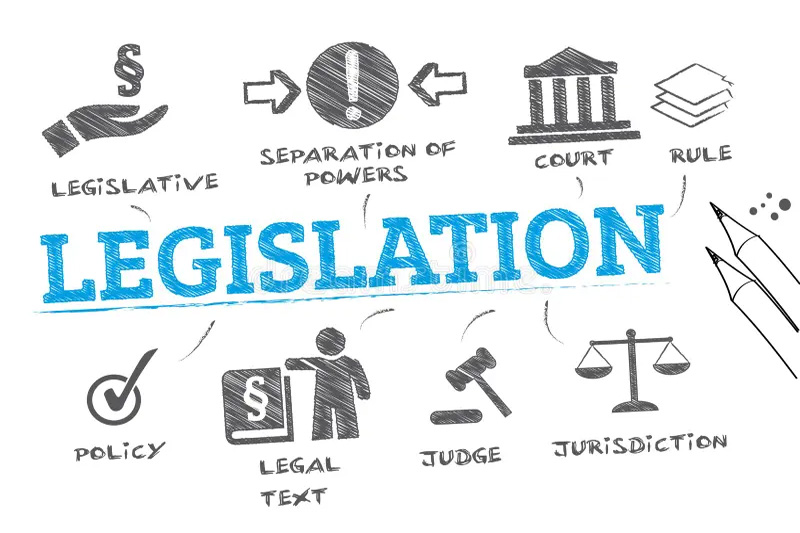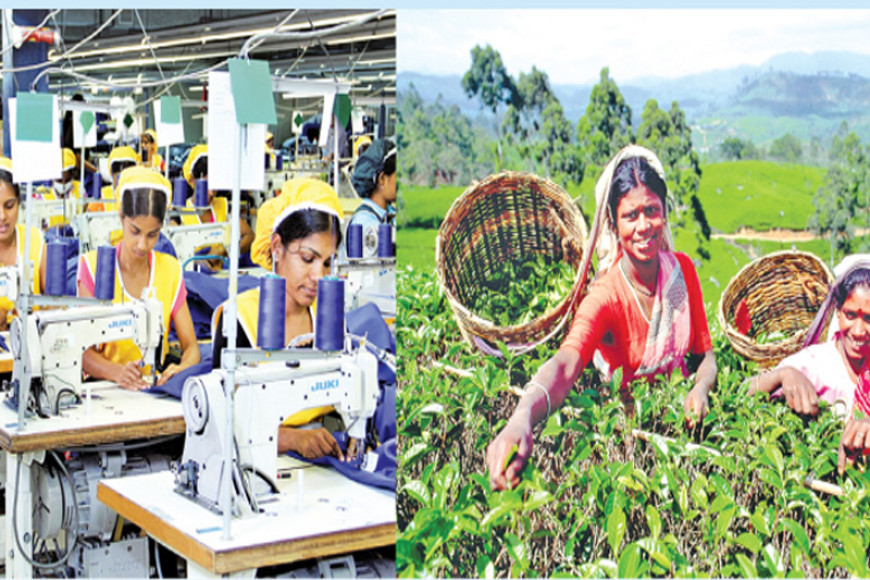Sri Lanka's path to economic recovery involves comprehensive reforms in institutional governance, tax policy, legislation, procurement, and asset recovery. Sustained efforts and medium to long-term strategies are essential to address the deep-rooted challenges and ensure a stable economic future
The island nation’s economic crisis is rooted in long-term macroeconomic vulnerabilities, exacerbated by policy missteps and external shocks. Key contributors include persistent budget and current account deficits, the 2019 tax cuts, the COVID-19 pandemic, and global geopolitical tensions. Governance issues and corruption have further deepened the country's economic and social challenges.
Institutional Reform:

To address corruption, specific Action Plans and Anti-corruption Units are being established within the Inland Revenue Department (IRD), Sri Lanka Customs, and the Excise Department. Enhanced digitalization is planned to reduce human interaction, thereby minimizing corruption opportunities. Strengthening the Revenue Administration Management Information System (RAMIS) at the IRD, which has faced significant delays, is a priority. Governance-related reforms require substantial change management, including personnel, systems, and practices that have been entrenched for years. Successful reforms in other countries suggest that these measures must be sustained over the medium to long term to yield meaningful results.
Tax Incentives:

Public debate has centered on tax incentives and holidays, which are crucial for attracting investment but come at significant fiscal costs. While many VAT and Corporate Income Tax exemptions have been removed, substantial incentives remain for Strategic Development Projects (SDP) and Board of Investment (BOI) projects, which are legally binding and cannot be revoked without serious repercussions.
To mitigate the impact, the government plans to halt new tax exemptions and introduce amendments to the SDP Act by February 2025, establishing transparent and rules-based eligibility criteria for time-bound investment incentives. Additionally, efforts to improve the investment climate, such as better access to government-owned land, skilled labor, and addressing capital market bottlenecks, will be accelerated.
Legislation:

The Anti-Corruption Act, passed in 2023, aims to address corruption vulnerabilities. The Commission to Investigate Allegations of Bribery or Corruption (CIABOC) is being fully operationalized under this Act, with senior officials' asset declarations set to be published by July 2024. The Public Financial Management (PFM) bill, submitted in May 2024, seeks to enhance transparency, accountability, and efficiency in managing public finances. The PFM law will provide a comprehensive framework for fiscal governance, covering the budget process, revenue and expenditure management, fiscal transparency, and procurement disciplines. New legislation on Public-Private Partnerships and State-Owned Enterprises (SOEs) will address governance issues within these entities.
Procurement:

The National Procurement Commission (NPC) was re-established in 2023 to oversee public procurement and ensure adherence to best practices, reflecting the government's commitment to good governance. A new Procurement Law is expected by the end of 2024. Meanwhile, new Procurement Guidelines are being approved, and the Electronic Government Procurement (e-GP) Platform is being expanded with assistance from the EU and World Bank. The e-GP aims to facilitate public procurement through various methods by the end of 2025.
Asset Recovery Legislation:

Strengthening the anti-corruption legal framework, new asset recovery legislation is being developed. An expert committee appointed in March 2023 is working on the policy framework, with legislation expected by November 2024. However, asset recovery is a long process, as evidenced by the Philippines' experience with Ferdinand Marcos' ill-gotten gains. Therefore, enhancing government revenue remains crucial for meeting public expenditure needs and restoring debt sustainability.
Barclays, a leading multinational universal bank, maintains an "overweight" rating on Sri Lanka bonds and recommends buying bonds with higher past due interest (PDI), following recent agreements on restructuring International Sovereign Bonds (ISBs). The bank's latest research on Fixed Income, Credit, Currency, Commodity, Futures, and Macroeconomic (FICC) aspects of Emerging Asia Sovereign Credit supports this stance.
Barclays believes macroeconomic triggers will likely result in a recovery value of 62 at a 12% exit yield, aligning with their fair value estimate of 60-65. They highlight potential upside from better exit yield estimates and specifically recommend SRILAN 25/28/29/30 bonds due to higher PDI claims.
Several key developments indicate progress in restructuring, likely to conclude within a few months. These include government acknowledgment of the importance of restructuring for timely IMF disbursements, a $336 million disbursement under the Extended Fund Facility (EFF) from the IMF, meeting most structural benchmarks, and cabinet approval of debt agreements with bilateral creditors. Additionally, the completion of the Memorandum of Understanding (MoU) with the Official Creditor Committee (OCC) supports Barclays' optimism.
Barclays' model, created before the Joint Working Framework, assumed a starting coupon of 4%, increasing to 8% over the bond's life. They modeled a 10-year maturity extension with principal amortizations starting in 2028, accelerating in the last three years, and anticipated 20-30% principal haircuts. At a 12% exit yield, this suggested recovery values in the mid-50s. Including creative recovery options for PDI and a contingent payout structure, Barclays estimated a fair value of 60-65.
Key features of the restructuring include a 1.8% consent fee paid upfront, an 11% haircut on past-due interest, and accrual starting from March 2024. The macro-linked bonds will trigger based on USD nominal GDP (average 2025-2027) but will include a control variable (real GDP cumulative growth for 2024-2027). Under the IMF baseline, this equates to a recovery value of 64.8 at a 12% exit yield.
Barclays also notes Sri Lanka's stabilizing macroeconomic situation. The economy is recovering sharply from the 2022 crisis, with signs of improved economic activity, inflation moderated to single digits, and a surplus in the current account
Economic activity highlights of the week
President Ranil Wickremesinghe emphasized that a robust economy for Sri Lanka can be achieved by enhancing the export economy, manufacturing, tourism, technology sectors, and modern agriculture. He noted that the government has already set the groundwork for this vision. These remarks were made during the inauguration ceremony of the second and third phases of the Export Processing Zone in Bingiriya, the largest of its kind in Sri Lanka. Upon completion, this zone is projected to generate USD 2,600 million in export income and create 75,000 job opportunities.
Meanwhile, the Committee on Public Finance (COPF), led by Dr. Harsha de Silva, has published a critical report exposing significant discrepancies in the procurement process involving a Consortium of GBS Technology Services, IVS Global-FZCO, and VF Worldwide Holdings Ltd. The report reveals several key findings:
Uncompetitive Procurement Process: The Consortium was appointed without a competitive bidding process, which prevented the Department of Immigration and Emigration (DOIE) from securing the best value for money. Proposals were submitted before finalizing the System Specification Requirement (SSR), raising concerns about procedural integrity.
Unclear Fee Structure: There was a lack of transparency in the fee components, including discrepancies in service and convenience fees.
Data Breach and Termination: A significant data breach reported in May 2024 could potentially trigger a termination clause.
The COPF recommends a comprehensive forensic audit by the Auditor General to serve as the foundation for necessary actions, which could include abrogating or amending the Consortium Outsourcing Agreement
Additionally, Dr. de Silva highlighted irregularities in the import of electric vehicles by Sri Lankan expatriates, revealing that 66 percent of these vehicles were imported through two companies, leading to potential tax relief abuses amounting to Rs. 100 million. The committee has requested the Finance Ministry to investigate these irregularities.
In another development, the Asian Development Bank (ADB) approved a $100 million policy-based loan to support reforms aimed at enhancing the financial sustainability of Sri Lanka's power sector.
The program will assist initiatives under the renewable energy expansion plans for 2023–2030, including implementing a periodic revision of feed-in tariffs for small power plants and rooftop solar users, facilitating the integration of renewable energy projects into the national grid, and applying a competitive procurement framework for renewable energy projects.



